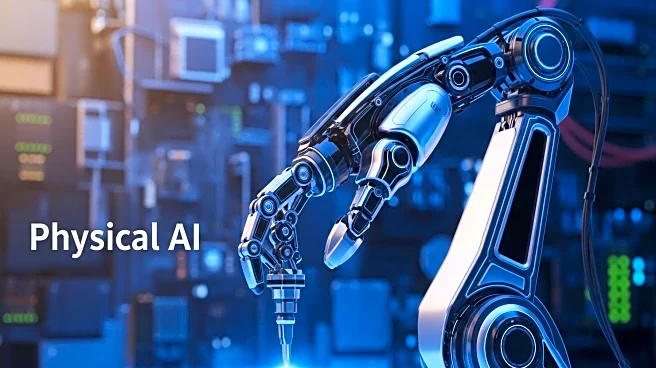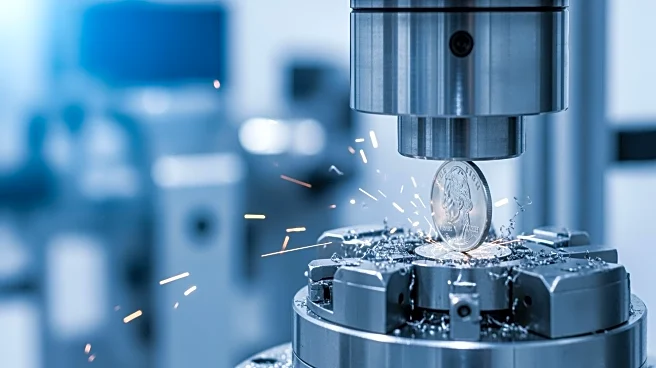What's Happening?
RealSense, formerly part of Intel, is now operating as an independent company focused on 'Physical AI,' which aims to equip machines with advanced vision capabilities. Under the leadership of Chief Marketing Officer Mike Nielsen, RealSense is developing technologies that provide machines with perception abilities that surpass human capabilities. This includes innovations in depth camera technology and partnerships to enhance robotics and automation. The company is focusing on improving real-time depth, accuracy, and reliability for applications in autonomous mobile robots and humanoids.
Why It's Important?
The transition of RealSense into an independent entity marks a significant development in the field of robotics and automation. By focusing on 'Physical AI,' RealSense is poised to drive advancements in machine perception, which is crucial for the development of scalable and commercially viable robotic systems. This could lead to more efficient and capable robots in various industries, including manufacturing, logistics, and healthcare. The company's innovations may also reduce reliance on costly technologies like lidar, making advanced robotics more accessible.
What's Next?
RealSense plans to continue its focus on developing cutting-edge depth camera technologies and expanding its market presence. The company aims to achieve higher safety certifications and explore new applications for its technologies in biometrics and access control. As RealSense continues to innovate, it may influence the broader robotics industry by setting new standards for machine perception and integration. The company's future developments could further enhance the capabilities of autonomous systems and drive the adoption of robotics across various sectors.
Beyond the Headlines
The ethical and privacy considerations of advanced machine perception technologies will be an important aspect of RealSense's future developments. Ensuring that these technologies are used responsibly, particularly in applications involving biometrics and personal data, will be crucial. Additionally, the cultural and societal impacts of increasingly capable robots will need to be considered as these technologies become more integrated into daily life.










